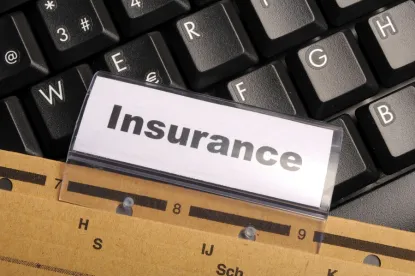The COVID-19 pandemic is ongoing and local and state governments are issuing directives closing restaurants, movie theaters, gyms and other businesses. Some local governments have even issued shelter-in-place orders. In other instances, some businesses have begun closing their doors as a preemptive measure, either to reduce the spread of the virus or in response to reduced demand from customers. As an example, restaurants in many large cities, such as New York and Washington, D.C., have shuttered their doors except for delivery orders. In this blog post, we examine civil authority orders in the context of insurance coverage for COVID-19.
Many insurance policies offer business income and extra expense coverage (business interruption) pursuant to “civil authority” provisions. This coverage applies when a civil authority (e.g., state, local or federal governmental entity) prohibits access to an insured’s premises due to direct physical loss of or damage to property other than at the insured’s premises, from a covered cause of loss.
Although policyholders may assume that they are entitled to coverage simply because their policy contains a civil authority provision, this isn’t necessarily so. Insurance policies differ markedly and the specific terms and conditions of an insurance policy will prevail over any assumptions or generalizations. See Penton Media, Inc. v. Affiliated FM Ins. Co., 245 F. App’x 495 (6th Cir. 2007) (applying traditional principles of contract construction to interpret the policy and affirming district court’s determination that the civil authority provision did not cover the insured’s claim). Moreover, as was discussed in a previous post, even when a government order prohibits or otherwise specifically restricts access to an insured premise, the policy may still require a nexus to a direct physical loss before triggering coverage.
For example in Dicki Brennan & Co. v. Lexington Insurance Co., 636 F.3d 683 (5th Cir. 2011), the court held that insureds could not recover for business losses resulting from an evacuation order issued in anticipation of Hurricane Gustav. The policy’s civil authority provision provided, “[w]e will pay the actual loss of Business Income . . . caused by action of civil authority that prohibits access to the described premises due to direct physical loss of or damage to property, other than at the described premises . . . .” The insureds argued that the evacuation order was issued in response to physical loss in the Caribbean, but the court rejected this argument, holding that the insured “failed to demonstrate a nexus between any prior property damage and the evacuation order.” The court held that the policy required a “causal link between prior damage and [the] civil authority action,” and that the insureds had not demonstrated that causal link because the evacuation order was issued to prevent possible future storm damage.
In Source Food Technology, Inc. v. United States Fidelity & Guaranty Co., 465 F.3d 834, 838 (8th Cir. 2006), the insured sold modified beef products it obtained exclusively from a Canadian supplier. After a cow in Canada tested positive for Mad Cow Disease, the U.S.D.A. issued an embargo prohibiting the importation of beef from Canada. The embargo affected the insured’s ability to obtain beef from its Canadian supplier and resulted in the termination of one of its contracts. The court held that there was no coverage under these circumstances, finding, in part, that because the insured conceded that the beef it sought to import was not physically contaminated or damaged in any way, there was no “direct physical loss” to property and, accordingly, there was no coverage for business interruption.
It is common for policies to require that civil authority orders specifically prohibit access to the insured’s premises. For example, in Southern Hospitality, Inc. v. Zurich American Insurance Co., 393 F. 3d 1137 (10th Cir. 2004), a group of hotels sought to recover business losses under a civil authority provision after the government temporarily grounded all flights in the United States following the attacks on September 11th. The policy provided that “[w]e will pay for the actual loss of Business Income you sustain . . . caused by action of authority that prohibits access to the described premises . . . .” The Tenth Circuit affirmed the district court’s conclusion that the civil authority provision did not provide coverage because the order related to grounding flights and the effect on the insured’s hotels was peripheral.
In Borah, Goldstein, Atschuler, Nahins & Goidel, P.C. v. Trumbull Insurance Co., 2016 N.Y. Slip Op. 32736 (U) (N.Y. Cty. Apr. 5, 2016), a New York trial court agreed with an insurer that civil authority coverage did not apply because the government order did not specifically prohibit access to the insured’s premises. There, the civil authority provision provided “[t]his insurance is extended to apply to the actual loss of Business Income you sustain when access to your ‘scheduled premises’ is specifically prohibited by order of a civil authority as the direct result of a Covered Cause of Loss to property . . . .” The court determined that the “scheduled premises” were located in zone C, and the civil authority orders pertained to zone A. Thus, “plaintiff’s access to the ‘scheduled premises’ was not ‘specifically prohibited . . . .’” Further, “the state of emergency declared by” the governor and mayor “did not “specifically prohibit[ ]” access to plaintiff’s property and it was not enough to show that plaintiff had a “mere difficulty in accessing the premises.”
In the context of natural disasters, courts have generally held that civil authority orders issued prior to actual, physical damage of an insured property do not trigger business interruption coverage. Query the implications of a civil authority order prior to a COVID-19 infection.
In Kelaher, Connell & Conner, P.C. v. Auto-Owners Insurance Co., No. 19-00693, 2020 U.S. Dist. LEXIS 31081, at **2-4, 8-11 (D.S.C. Feb. 24, 2020), the insured was a law firm located within a mandatory evacuation zone prior to Hurricane Florence. The court found there was no business interruption coverage because the policy extended coverage only when “access to the described business premises” was “prohibited by order of civil authority because of damage or destruction” (emphasis added). The court found no coverage under the civil authority provision, which it interpreted as “requir[ing] a link between the issuance of the civil authority order and the property damage.” See South Texas Medical Clinics, P.A. v. CNA Financial Corp., No. 06-4041, 2008 U.S. Dist. LEXIS 11460, at **2, 31-34 (S.D. Tex. Feb. 15, 2008) (no business interruption coverage when policy required a civil authority order to be issued “due to direct physical loss of or damage to property”).
Finally, at least one court has treated a civil authority’s recommendation differently than an order. In Kean, Miller, Hawthorne, D’Armond McCowan & Jarman, L.L.P. v. National Fire Insurance Co., No. 06-770, 2007 U.S. Dist. LEXIS 64849, at **2-3, 11-12 (M.D. La. Aug. 29, 2007), a New Orleans law firm was affected by a recommended, but not mandatory, evacuation order leading up to during Hurricane Katrina. The court found there was no coverage “because the advisories and recommendations given did not actually ‘prohibit access’ to the insured premises.” On the contrary, the civil authorities “merely recommended or encouraged that residents remain off the streets if possible.” The insured failed to show “that its employees, or any other residents . . . were specifically prohibited from driving on the streets and/or traveling to and entering its business premises.”





 />i
/>i
